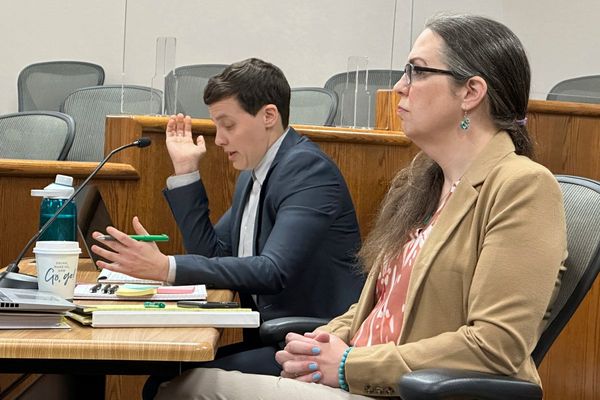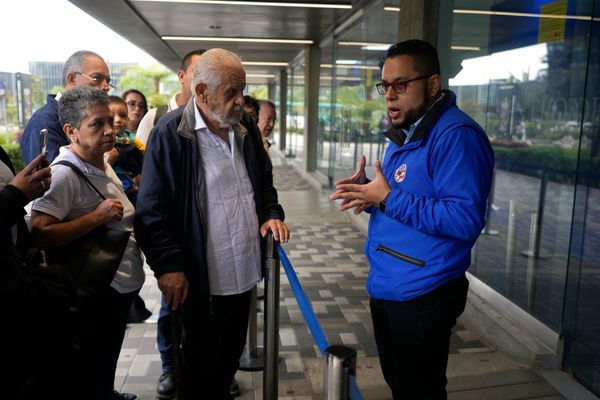
Daniel Andrews has been one of the most transformational leaders in Australia’s history. Victorians will be living with his legacy for decades – encountering it when they drive, catch public transport, raise their children and, for some, even at the point of death.
His main legacy is already clear: the huge infrastructure and public transport projects that will mould life in Australia’s fastest-growing capital for the century ahead. If they work, they will keep Melbourne livable, despite the pressures of a booming population.
Added to this record are the social reforms. Under Andrews, Victoria became the first state to legalise voluntary assisted dying. It held a landmark royal commission into family violence. It was the first state to start the process of negotiating a treaty with First Nations people – far ahead of any other jurisdiction. It decriminalised street-based sex work.
As the previous federal government stepped away from investment in early childhood development, the Andrews government made kindergarten free, from next year, for three- and four-year-olds. It added a new year of universal prep for four-year-olds from 2025.
Andrews has also distinguished himself by picking the right moment to go. The government was moulded in his image and there was a lot to like about that. He is a powerful man, with courage, a vision for the state and a strong sense of public service.
But he was also a big tree blocking out sunlight. He prevented some things from growing. On the other hand, he allowed and even encouraged other things to fester in the dark. He pushed on relentlessly, gutting political enemies, sometimes accommodating and sometimes crashing through the pathologies of Labor’s factions.
Through all this, he retained public popularity. But the wheels were beginning to wobble.
Over the last couple of years, the words “tightly held” have come up in almost every conversation about Andrews government decisions.
It reflects the way in which major policy has been developed by a small group of his most trusted people – developed in what one observer described as a “black box”, with even government ministers excluded, unless they were in the increasingly tiny circle of the favoured.
The politicisation of the public service – its lack of ability and sometimes the will to stand up to the premier – was becoming one of the themes of the government.
As a result, vision has increasingly collided with poor judgment and management. The government was beginning to look tired, and the problems have been mounting up.
Take the decision to get into the Commonwealth Games and then the decision to cancel them.
A fitting symbol of the final days of the Andrews era might well be the tender documents for the Commonwealth Games aquatic centre at Geelong, which required the successful contractor to build three pools. After the Games and with just two weeks of use, two of them were to be filled in, to be replaced by sports courts.
Through scandal and resignation, there has been an extraordinarily high turnover of ministers. Seventeen of the 22 members of Andrews’ original ministry have quit or been sacked over the last nine years.
Some deserved to go, but others were among the best thinkers in the government. They were once Andrews’ trusted colleagues and friends, then they were frozen out.
In the next few decades, we will find out more about the impact on government decision-making of those departures.
For example, what is the quality of management in the housing package? Have the rights and land transfers along railway lines been set up to reflect the public interest or was that set aside?
There is construction everywhere in Victoria now – road and rail projects, including the Metro tunnel, level crossing removals and the West Gate Tunnel, as well as school upgrades.
In his last week, Andrews added another example – the housing package, including the demolition, over 30 years, of the 44 public housing towers that have punctuated the inner suburbs since the 1970s. It is an enormous project that will change the character of the inner city.
The towers are the legacy of a time when public sector debt was not a sin and a big role for state government was assumed. Andrews has been in that tradition and there will be no escaping his impact – including the debt burden he leaves behind.
Assuming future governments stick to the program, Andrews’ big projects will still be dominating the state when most of those involved in present-day decision-making are retired or dead.
Dealing with all this, introducing changes if needed, will probably now be the work of Andrews’ deputy and likely successor as premier, Jacinta Allan.
She has been one of those most closely involved in the “black box” of policymaking – a quintessential Andrews insider. She was minister for the Commonwealth Games delivery, as well as for transport and infrastructure. In other words, right at the heart of the most consequential decisions.
Has she got the capacity to refresh and reset?
Can she, will she, build a more transparent, humble, consultative government?
If so, Labor may well be in government for decades, given that the Liberal party is nowhere more hapless than in Victoria.
The record of longstanding premiers in Australia is mixed, to put it mildly. The longest-serving was Thomas Playford in South Australia, who hung on to power for 27 years, largely thanks to a gerrymander, and took a largely agricultural regional economy and turned it into a manufacturing hub.
Then there was Joh Bjelke-Petersen in Queensland, who helped bring down the Whitlam government, pushed economic development, but presided over a virtual police state and fostered an institutional corruption in which all the engines of state were bent to his will.
His government ended in disgrace and he was lucky to avoid criminal conviction.
Andrews is a smarter man than either of those. Unusually for a politician, he goes at a time of his own choosing – and after nine years. A long term, but not long enough, we should hope, to calcify the mechanisms of power.
He leaves a remoulded state and the possibility of a refresh.
• Margaret Simons is an award-winning freelance journalist and author. She is an honorary principal fellow of the Centre for Advancing Journalism and a member of the board of the Scott Trust, which owns Guardian Media Group







